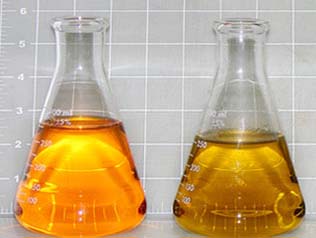
100% Sustainable Aviation Fuel: Transforming the Future of Air Travel
 by FTE Published on Monday, May 5th, 2025
by FTE Published on Monday, May 5th, 2025

The aviation industry is on a path towards major transformation to meet environmental standards by 2050, a goal driven by the projected doubling of jet fuel consumption. Achieving carbon neutrality is a central focus, and sustainable aviation fuel (SAF) stands at the core of this transformation. SAF aims to drastically reduce carbon emissions from both commercial and military aircraft, which rely heavily on conventional fossil-derived jet fuel.
Current jet fuels comprise two main components: aliphatic and aromatic molecules. Aliphatic molecules, similar to those in diesel fuel, can be sourced sustainably from plant materials. Aromatic molecules are more complex and crucial for maintaining fuel properties and system integrity. The challenge has been to provide aromatic molecules sustainably, which limits the incorporation of sustainable fuels due to the “blending wall.”
Researchers from MIT, led by Yuriy Román-Leshkov, are exploring innovative avenues to breach this blending barrier. Their research focuses on lignin, a natural material found in plants, using a new catalytic process to extract and convert it into valuable aromatic molecules needed for SAF. This new method uses a combination of ruthenium-based catalysts and molybdenum carbide to break down lignin into aromatic compounds effectively.
Preliminary tests show promising results, with the produced fuels demonstrating characteristics similar or even superior to traditional aviation fuels. The potential to use alternative feedstocks, such as pine or switchgrass, offers flexibility and could support various SAF production routes.
The team’s advancements offer the possibility of removing the blending wall, leading to 100% renewable jet fuel. This shift is critical as the aviation sector explores paths towards fully sustainable flight operations. Future decarbonisation of aviation heavily depends on these innovative fuels and their integration into carbon-efficient fleets.
Organisations like Air BP and Marathon Petroleum Corporation are essential in this journey, as their involvement can extend the transatlantic network of SAF distribution. This collaboration will be vital in achieving the set targets for using SAF blends and ultimately reaching net zero carbon emissions by 2050.
Such pioneering progress in sustainable aviation fuels is vital for reducing our climate impact, with each development marking a step towards more eco-friendly air travel and improved local air quality.






 categories
categories